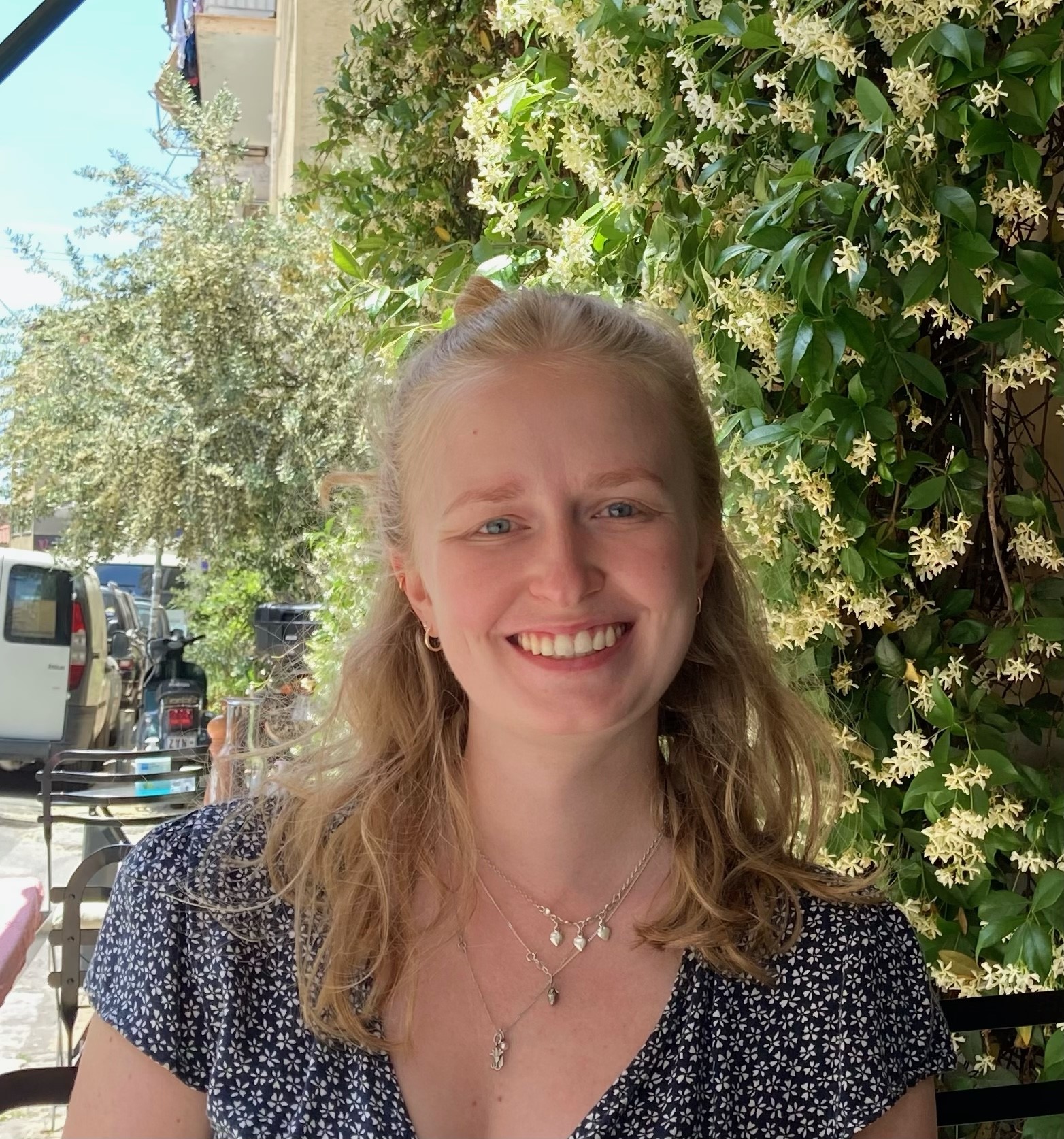May 7, 2024

To celebrate our 2024-2025 Fellowship recipients, we reached out to our winners to learn about their projects and their experiences in archaeology. We’re excited for you to meet Justine Lefebvre, one of this year’s Anna C. & Oliver C. Colburn Fellowship winners.
Anna C. & Oliver C. Colburn Fellowship Winner: Justine Lefebvre; Université de Montréal
One of this year’s AIA Anna C. and Oliver C. Colburn Fellowship winners, Justine Lefebvre (a PhD candidate at the University of Montreal), will study bronze production from the Archaic and Classical periods. As part of her fellowship, she will travel to the American School of Classical Studies in Athens, Greece, as well as the Archaeological Museum of Amphipolis to study a sample of the one thousand artifacts related to metal production that have been unearthed at the site of Argilos since 1992.
Lefebvre will employ mass spectrometry and metallographic analysis to look at how these bronze artifacts were made, what their chemical composition can reveal about the origins of the metals, what metal-working methods were used to treat them, and how these objects show how bronze production changed over time. With this information Lefebvre will answer questions about how the ancient Greeks worked with bronze, the history of the technical knowledge of bronze production was passed along, and how these materials and objects were traded thousands of years ago. With her research, Lefebvre hopes to contribute a more detailed and nuanced understanding of bronze production during these periods of Ancient Greek history.
How did you get your start in archaeology?
Having a strong interest in history and archaeology since a very young age, I decided to pursue studies in Classics at the Université de Montréal. A strong point of that undergraduate program is the possibility for undergraduate students to participate in the Argilos field school during the summer semester. Indeed, since 1992, hundreds of undergraduate students have taken part in that project to discover the work of archaeologists, having the opportunity to learn all the steps of archaeological research, from the excavation to the cataloging of the finds.
In 2016, I then very eagerly traveled to Northern Greece to participate in that field school where I would learn archaeology, apply theoretical knowledge gained in lectures, and meet colleagues, not only from the Université de Montréal but from all around the world. I very quickly fell in love with the country and found a passion for archaeological research, both on and off the field. Since that first experience, thanks to the support and mentorship of my research supervisor Prof. Jacques Perreault, I have been coming back to Northern Greece yearly, to carry out research and to now teach students and to share my knowledge and passion with them.
Where in the world has archaeology brought you (fieldwork, research, conference travel, etc.)?
As mentioned, I have been a member of the Argilos team since my first participation in that archaeological excavation project in 2016. Since then, I have been spending every summer in Northern Greece, mentoring students and conducting my own research. With time, it has given me the chance to travel around Greece and to enjoy discovering other regions of Greece, such as Attica, the Peloponnese, and many islands. Pursuing doctoral research in classical archaeology has also given me the opportunity to experience living in Athens, where I learned more about the Greek culture, language, and way of life. Thanks to the support of the AIA Colburn Fellowship, I am very grateful to be able to stay in this amazing vibrant city, for an additional academic year.
Other than Greece, archaeology has allowed me to travel to Egypt, where I had the chance to explore Cairo, Alexandria, Luxor, and Aswan, and discover numerous archaeological sites all along the Nile River, such as the Giza pyramids, Abu Simbel, and many other temples. Thanks to a shared passion for ancient history and archaeology, the strong bonds created with colleagues who became great friends, allowed me to realize this childhood dream of mine. Funnily enough, the idea for this two-week trip was sparked while discussing after an AIA lecture hosted at the Montreal Society back in 2018!
What is one of the most memorable things that has happened to you in the field?
Since Argilos has never been re-inhabited after the conquest of the city by Philipp II of Macedon, we have the chance to find remarkably well-preserved architectural remains and an abundant and diverse material culture. Having worked in Argilos for 8 years now, this makes for many memorable finds and moments. However, I think the one thing I will never get over is the awe-inspiring beauty of witnessing the world awaken during our early morning commute to the site. The pink, orange, and purple hues of the sunrise over Mount Pangaion and the Strymonic Gulf, the fishermen quietly out on the water, and the air still fresh from the night is a fleeting yet seemingly timeless magical moment I wish everybody had the chance to experience and enjoy.
How has the AIA contributed to your success/professional goals?
Throughout my studies at the Université de Montréal, I have had the privilege to attend numerous lectures hosted by the AIA Montreal society. Through the Colburn Fellowship, the AIA will immensely contribute to my doctoral research, by facilitating my access to the invaluable resources available at the ASCSA, and by giving me the opportunity to engage in stimulating discussions and idea exchanges with scholars and fellow colleagues.
Once again, I would like to express my gratitude for the generous support of the AIA through the Colburn Fellowship. I am truly grateful for the opportunities such as the Colburn Fellowship the AIA provides to students like myself, supporting us and our research, and helping us to work towards our various academic goals.
Learn more about what Fellowship opportunities are available through the AIA or reach out to our Programs and Professional Services Coordinator, Kati Albert at kalbert@archaeological.org.